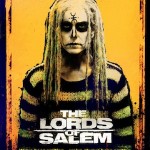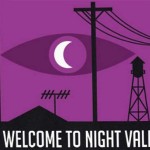Today we have our first article by Fanboy News Network Horror Correspondent Jennifer Lovely:
The success:
 Jug Face grabbed me the moment the credits began; it pulled me in with its primitive
Jug Face grabbed me the moment the credits began; it pulled me in with its primitive
folk art animation that foreshadows the movie’s undertone, style and people. I was
really struck by the charisma of each the primary characters. The sympathy that you
feel for the young woman in the lead role is surprisingly strong in a short period
of time. You immediately gather that she has wits and is struggling to survive as
well as she can in a backward, cultish community. Having grown up in a small town in
a rural area, you see a lot of that tough, almost emotionless, rearing. It was very
familiar to me and I understood how emotionally starved she was, and why she would
make choices that would normally horrify or disgust me. Both the special effects and
sound effects are well used and give a sense of foreboding, while never being
intrusive or overplayed. This is a girl who fights and you root for her to make her
escape, yet when the end comes you understand the choices she makes.
The movie that fails:
 The Lords of Salem is not completely without merit. The quality of the supporting
The Lords of Salem is not completely without merit. The quality of the supporting
cast is amazing. Whenever Bruce Davison, Patricia Quinn, Judy Geeson, or Dee Wallace
enter the scene you are captivated. Every time I was about to turn it off, they
reappeared. The atmosphere and set combine to create their own character that
completely stands out. But, as soon as the story starts, things go downhill.
Firstly, the ominous sound use is ham-fisted and oppressive, it starts well but is
so overused it becomes cliché. Next, everything around Sheri’s character shows how
strong and what an individual she is (female DJ in a male dominated industry,
especially metal), but when she is on the screen you never see any of what they hint
at. The fact that she is attending NA and fighting to stay sober speaks of strength,
to me, in theory. But after five days of what is, in essence, bad dreams she starts
using again. It’s like she is only the shadow of an amazing person, walking around,
but that you never really get to see on screen. She is empty and defeated, and that
isn’t interesting. I don’t place the blame completely on Sheri Moon Zombie’s
shoulders. All she did is work within the story, and it was the story that failed
her. Because the moment things start going badly, it’s just a descent into oblivion
with no effort on the character’s part for any other outcome. And I just don’t find
that interesting.








